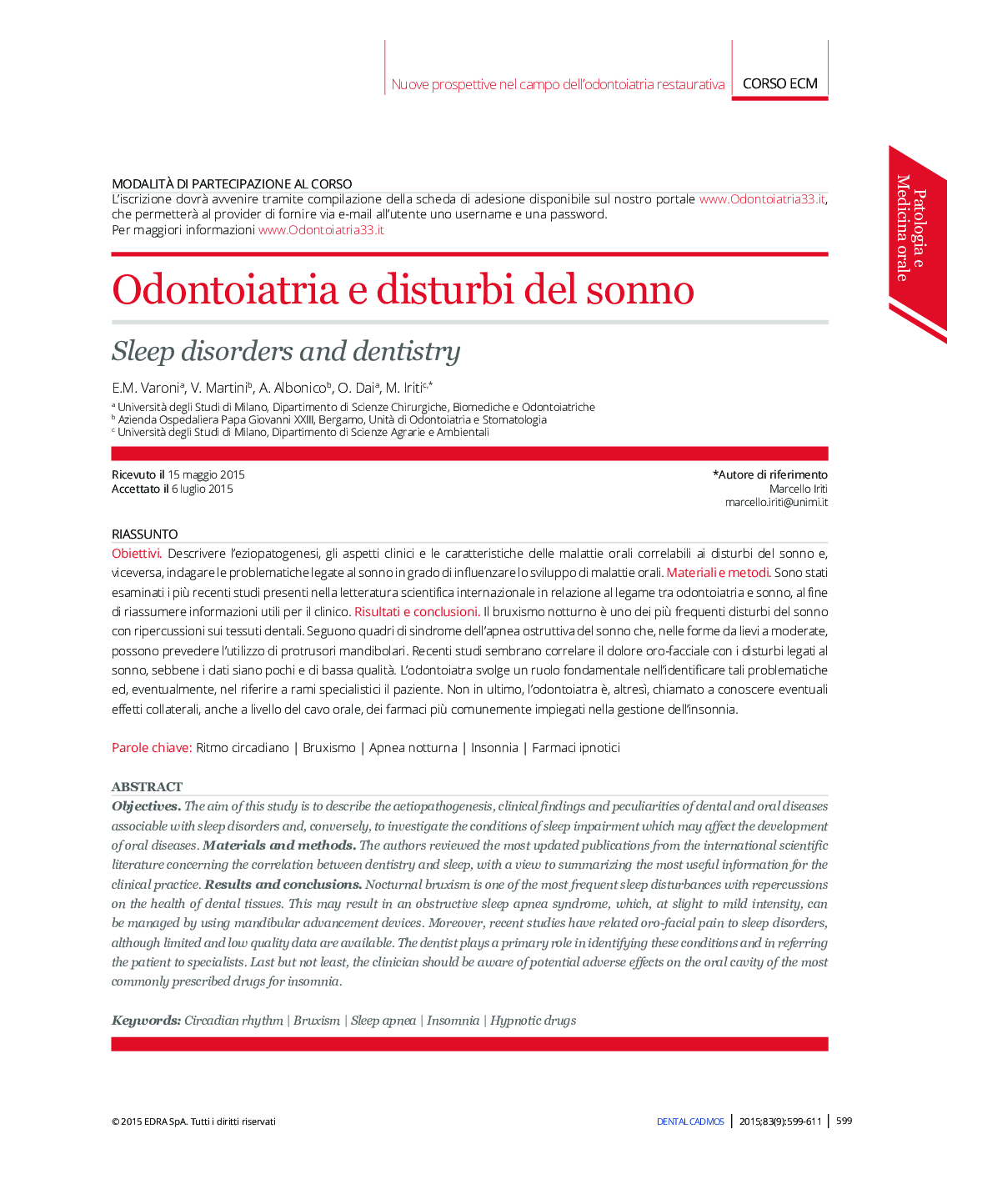| Article ID | Journal | Published Year | Pages | File Type |
|---|---|---|---|---|
| 3130064 | Dental Cadmos | 2015 | 13 Pages |
Abstract
Nocturnal bruxism is one of the most frequent sleep disturbances with repercussions on the health of dental tissues. This may result in an obstructive sleep apnea syndrome, which, at slight to mild intensity, can be managed by using mandibular advancement devices. Moreover, recent studies have related oro-facial pain to sleep disorders, although limited and low quality data are available. The dentist plays a primary role in identifying these conditions and in referring the patient to specialists. Last but not least, the clinician should be aware of potential adverse effects on the oral cavity of the most commonly prescribed drugs for insomnia.
Related Topics
Health Sciences
Medicine and Dentistry
Dentistry, Oral Surgery and Medicine
Authors
E.M. Varoni, V. Martini, A. Albonico, O. Dai, M. Iriti,
